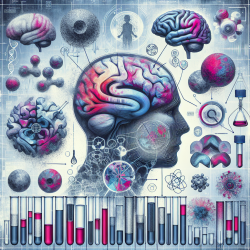Introduction to Neuroethics
In recent years, the field of neuroethics has emerged as a significant area of research, intersecting neuroscience, philosophy, and bioethics. This interdisciplinary field explores the ethical, legal, and social implications of neuroscience, particularly focusing on moral decision-making processes. The bibliometric analysis titled "Neuroethics 1995–2012" provides a comprehensive overview of the development and guiding themes of this emerging research field.
Key Findings from the Research
The study highlights several critical outcomes that practitioners in special education and online therapy can leverage to enhance their skills:
- Interdisciplinary Growth: The research indicates a significant increase in neuroethics publications, demonstrating the growing interest and recognition of this field. Practitioners can benefit from understanding the ethical dimensions of neuroscience to better navigate complex situations in special education.
- Ethical Decision-Making: One of the key themes is the neural processes involved in moral decision-making. Practitioners can apply this knowledge to develop more ethical and informed approaches when working with students requiring special education services.
- Integration with Neuroscience: The analysis reveals a close relationship between neuroscience and neuroethics. By integrating insights from neuroscience, practitioners can enhance their understanding of cognitive and behavioral aspects, leading to more effective therapy strategies.
Implementing Research Outcomes
Practitioners can implement the outcomes of this research in several ways:
- Continued Education: Engage in professional development opportunities that focus on the intersection of neuroscience and ethics. This could include attending conferences, webinars, or enrolling in courses that explore these topics.
- Collaborative Approaches: Work collaboratively with neuroscientists and ethicists to develop comprehensive strategies that address the needs of students in special education. This collaboration can lead to more holistic and effective therapy plans.
- Reflective Practice: Incorporate reflective practices that consider the ethical implications of therapeutic interventions. This reflection can help practitioners make more informed decisions that align with ethical standards.
Encouraging Further Research
While the study provides valuable insights, it also highlights the need for ongoing research in neuroethics. Practitioners are encouraged to contribute to this field by engaging in research projects, publishing their findings, and participating in discussions that shape the future of neuroethics.
Conclusion
The bibliometric analysis of neuroethics offers a wealth of information that can significantly enhance the skills of practitioners in special education and online therapy. By integrating the outcomes of this research into their practice, professionals can provide more ethical, informed, and effective services to their students.
To read the original research paper, please follow this link: Neuroethics 1995–2012. A Bibliometric Analysis of the Guiding Themes of an Emerging Research Field.










